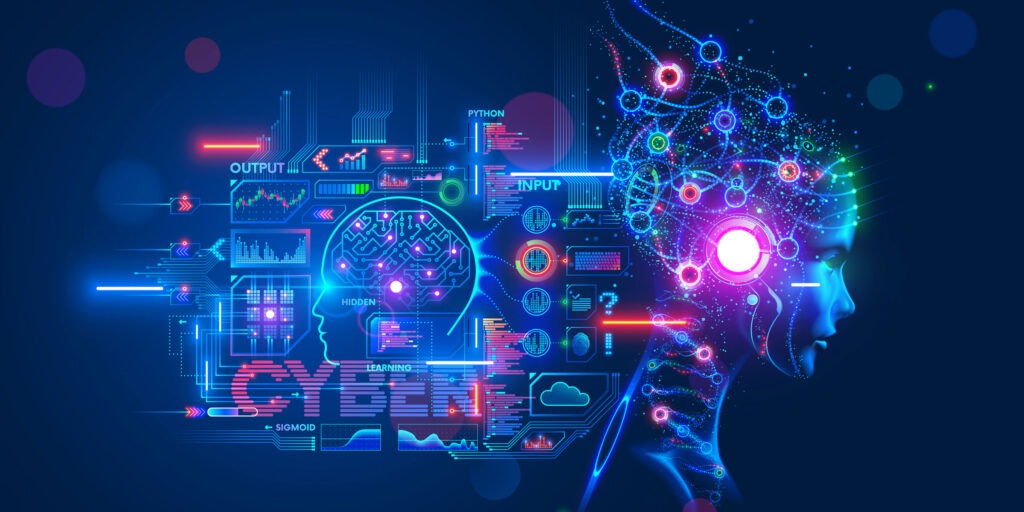Introduction
Artificial Intelligence (AI) is no longer a futuristic concept; it is a rapidly evolving field that is already reshaping industries, businesses, and everyday life. From smart assistants like Siri and Alexa to autonomous vehicles and AI-powered healthcare solutions, AI technology is driving innovation across various sectors. It has the potential to revolutionize how we work, communicate, and solve complex problems.
This article delves into the fundamentals of AI technology, its applications, benefits, challenges, and its impact on various aspects of society. We will also explore common misconceptions and provide answers to frequently asked questions about AI technology.

What is AI Technology?
AI technology refers to the simulation of human intelligence processes by machines, particularly computer systems. It encompasses the development of algorithms and models that enable machines to perform tasks that typically require human intelligence, such as learning, reasoning, problem-solving, understanding natural language, and perception.
AI is broadly categorized into two types:
- Narrow AI (Weak AI): This type of AI is designed to perform specific tasks, such as facial recognition, voice assistants, or data analysis. It is highly specialized but lacks the broader cognitive abilities of a human.
- General AI (Strong AI): General AI, still in its research phase, refers to machines that can perform any intellectual task that a human can do. It would possess the ability to learn, adapt, and apply knowledge across a wide range of subjects.
How AI Technology Works
AI works through the use of algorithms, data processing, and machine learning models. The key components that drive AI technology include:
- Machine Learning (ML): ML is a subset of AI that enables machines to learn from data and improve over time without being explicitly programmed. By analyzing patterns and correlations in data, ML algorithms can make predictions, classify information, and generate insights. Common machine learning techniques include supervised learning, unsupervised learning, and reinforcement learning.
- Deep Learning: A subset of ML, deep learning involves neural networks with multiple layers (hence the term “deep”) that are used to model complex data patterns. Deep learning is particularly effective in tasks like image and speech recognition.
- Natural Language Processing (NLP): NLP enables AI systems to understand and interpret human language. It allows machines to analyze text, understand context, and generate human-like responses, making it the backbone of chatbots, virtual assistants, and language translation tools.
- Computer Vision: This field of AI focuses on enabling machines to interpret and understand visual information from the world. Computer vision is used in applications such as facial recognition, autonomous vehicles, and medical imaging.
- Robotics: Robotics combines AI with mechanical systems to create intelligent machines capable of performing physical tasks. Robots equipped with AI can navigate environments, manipulate objects, and even interact with humans.
Applications of AI Technology
AI technology is being applied in diverse industries, providing innovative solutions to old challenges. Some notable areas where AI is making an impact include:
- Healthcare
AI is revolutionizing healthcare by improving diagnosis, treatment, and patient care. AI-powered systems can analyze medical data, such as X-rays, MRI scans, and genetic information, to detect diseases early and recommend treatment options. AI is also being used to develop personalized medicine, improve drug discovery, and assist in robotic surgeries. - Finance
AI plays a significant role in the financial industry, especially in areas like fraud detection, algorithmic trading, and risk assessment. AI systems can analyze large datasets to detect patterns and predict market movements, helping financial institutions make more informed decisions. Additionally, AI is used in chatbots for customer service and personalized financial advice. - Retail and E-Commerce
Retailers are increasingly using AI to improve customer experience and optimize their supply chains. AI-powered recommendation engines suggest products to customers based on their preferences and purchase history. Chatbots and virtual assistants help with customer inquiries, while AI algorithms predict demand, manage inventory, and streamline logistics. - Transportation and Autonomous Vehicles
AI is at the heart of the development of autonomous vehicles. Self-driving cars use AI algorithms to process data from sensors, cameras, and radar to navigate the road, recognize obstacles, and make real-time decisions. AI also plays a role in optimizing traffic flow, route planning, and predictive maintenance. - Manufacturing
In manufacturing, AI is used to improve production efficiency, reduce costs, and enhance product quality. AI-powered robots can perform tasks such as assembly, packaging, and quality control. Predictive maintenance powered by AI helps identify equipment issues before they become critical, minimizing downtime. - Education
AI is transforming the education sector by providing personalized learning experiences. AI-driven platforms can adapt to the learning pace and preferences of individual students, offering tailored content and feedback. AI is also used for administrative tasks such as grading, attendance tracking, and student performance analysis.
Benefits of AI Technology
- Increased Efficiency and Automation
AI can automate repetitive and time-consuming tasks, freeing up human workers to focus on more creative and complex activities. This leads to greater efficiency, faster decision-making, and reduced operational costs. - Improved Accuracy and Precision
AI systems are capable of processing vast amounts of data quickly and with great accuracy. This helps reduce human error, especially in tasks like medical diagnoses, financial analysis, and product inspections. - Data-Driven Insights
AI can analyze large datasets to uncover patterns and trends that would be impossible for humans to identify. This ability to generate actionable insights is valuable in sectors like healthcare, marketing, and business intelligence. - Personalization
AI enables businesses to offer personalized experiences to their customers. By analyzing consumer behavior, AI can recommend products, content, and services tailored to individual preferences, enhancing customer satisfaction and loyalty. - 24/7 Availability
Unlike humans, AI systems can operate continuously without the need for breaks or rest. This makes them ideal for applications that require constant monitoring or customer support, such as virtual assistants and customer service chatbots.
Challenges of AI Technology
While AI technology offers immense potential, it also presents several challenges:
- Ethical Concerns
AI raises ethical issues related to privacy, accountability, and decision-making. For example, there are concerns about how AI systems make decisions that can affect human lives, such as in healthcare or criminal justice. - Job Displacement
Automation powered by AI could lead to job displacement in certain industries. As AI systems take over routine tasks, workers may face challenges in finding new roles, especially those that require less technical expertise. - Bias and Fairness
AI systems are only as good as the data they are trained on. If the data used to train AI models is biased, it can result in discriminatory outcomes, such as unfair hiring practices or biased loan approvals. - Security Risks
As AI systems become more integrated into critical infrastructure, there are concerns about their vulnerability to cyberattacks. If malicious actors gain control of AI systems, they could cause significant damage to businesses, governments, and individuals.
Conclusion
AI technology is revolutionizing industries, enhancing productivity, and creating new opportunities. From healthcare to transportation, the potential applications of AI are vast and continue to expand. While AI brings numerous benefits, such as automation, efficiency, and personalized experiences, it also comes with challenges that need to be addressed, particularly in the areas of ethics, job displacement, and security. As AI technology continues to evolve, it will be crucial to ensure that its development is aligned with societal needs and values.
FAQs About AI Technology
- What is the difference between AI and machine learning?
AI refers to the broader concept of machines being able to perform tasks that require human intelligence, while machine learning is a subset of AI that involves training machines to learn from data and improve over time. - Can AI replace human jobs?
While AI can automate many tasks, it is more likely to augment human work rather than replace it entirely. Jobs that require creativity, emotional intelligence, and complex decision-making are less likely to be replaced by AI. - How does AI impact privacy?
AI systems often require large datasets to function, which can raise concerns about privacy. It’s important to have proper regulations in place to ensure that data is collected, stored, and used responsibly. - Is AI safe to use?
AI systems are generally safe to use, but there are potential risks, such as biases in algorithms or vulnerabilities to cyberattacks. It’s important to monitor and regulate the use of AI to mitigate these risks. - Will AI ever achieve general intelligence?
AI is currently limited to narrow tasks, and general AI remains a distant goal. Researchers are working toward developing more advanced AI, but achieving general intelligence is a complex challenge that may take years, if not decades, to accomplish.
4o mini



